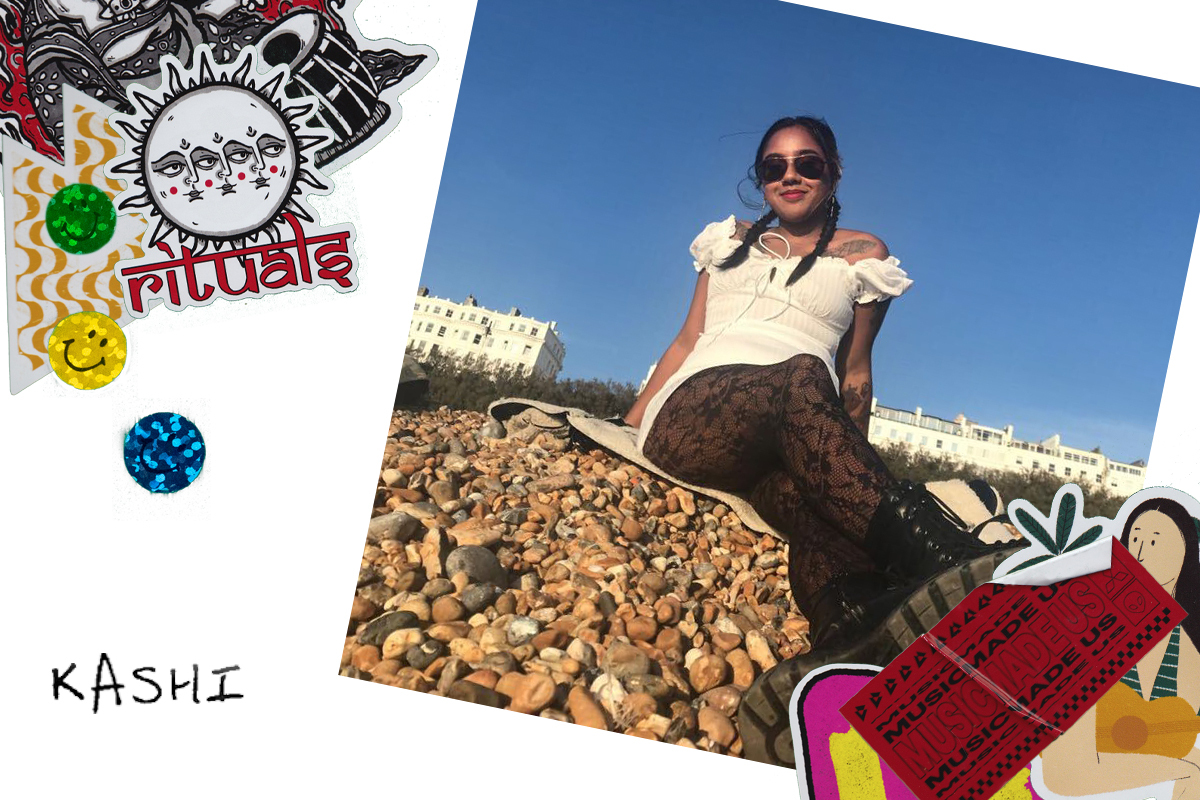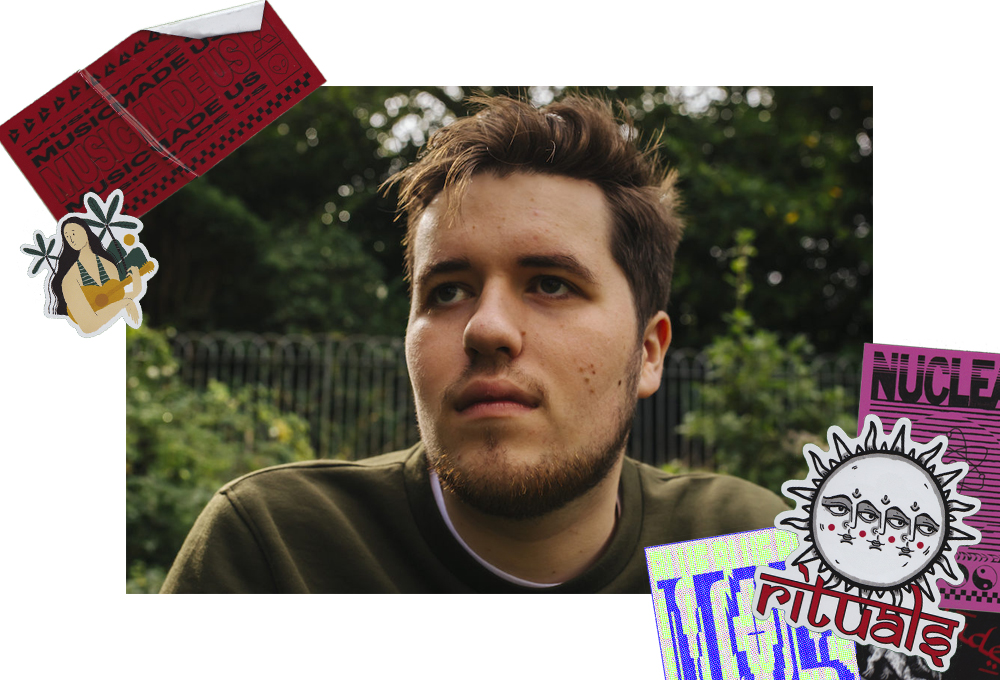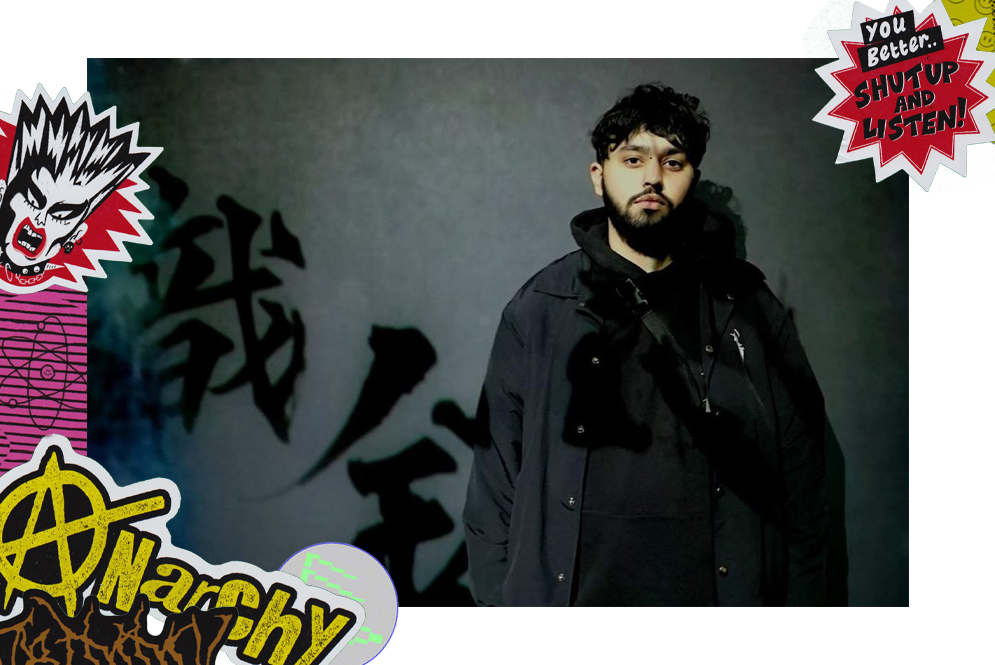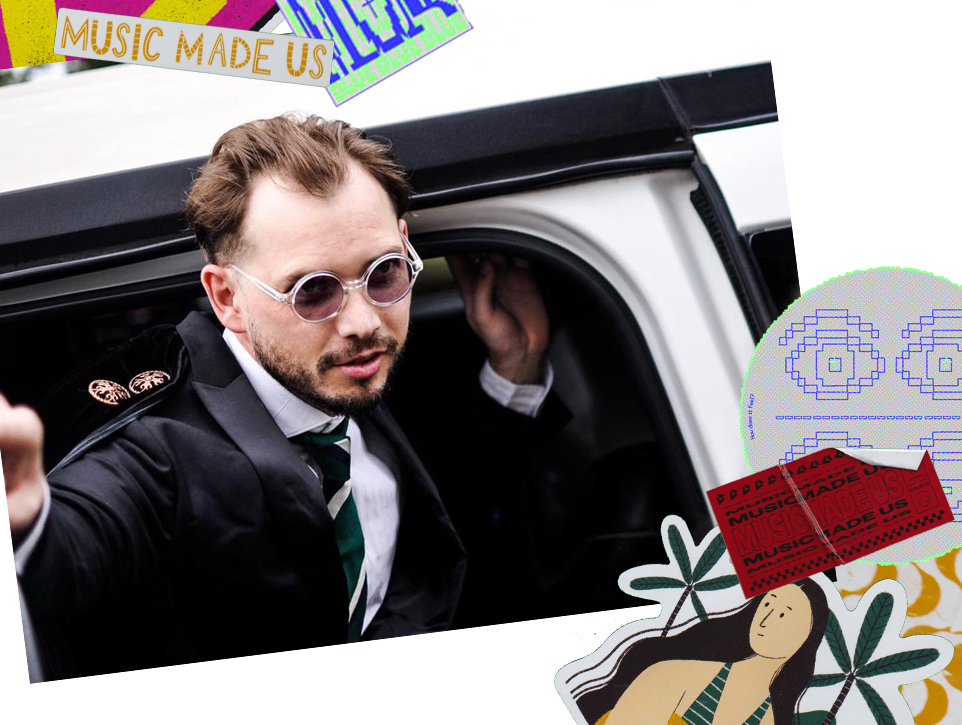For our Music Made Us campaign, Kashi Chellen, who studied MA in Learning and Teaching in the Creative Industries, explores her musical journey. She tells us about growing up in a Mauritian household in Watford, using anything as an instrument, the importance of being DIY, and how she wants to see the industry change.
I grew up in a Mauritian household, which allowed me to be immersed in Sega music’s beauty. Sega has some origins in slavery and grew to evolve into a form of music used to protest the issues and injustice in society. Growing up with influences like Kaya (a musical and almost political icon in Mauritian culture) taught me that our voices can and will be heard, and that music is an incredible way of ensuring that.
One of my favourite things about music in Mauritius is that literally, anything could be an instrument at a family get together. While I have a soft spot for traditional instruments like the Ravanne, I am an absolute master at the empty whiskey bottle!
Alongside this, I grew up in central Watford, and so my musical tastes had such a dual nature. On the one hand, I loved Sega/Seggae and listened to artists like Alain Ramanisum and Cassiya. On the other hand, I absolutely loved Paramore and Slipknot, so you can imagine how drastic the shift was when I put my iPod on shuffle.
Growing Up with a Dual Identity
I really appreciate growing up with such a dual identity. I feel like it’s made me a lot more open to different genres and styles of music. It’s made me appreciate the message and values that an artist holds, maybe even more so than the sound. This has given me more of a drive to combine all these elements into the work I want to do now.
“It’s shaped me.”
I find myself gravitating towards music that gives me the same feeling that I grew up with. It’s shaped me. I now look more into putting on gigs with BIPOC artists from the rock/alternative genres and artists with a powerful message and beliefs around using their art as a vehicle for change.
The Brighton Effect
I now live in Brighton. Brighton is such an incredibly vibrant town. The place literally feels alive, especially when the sun goes down. It’s hard not to immerse yourself in the music scene down here because it’s absolutely everywhere – from the graffiti and street art to the number of incredible grassroots venues we have. Each genre has its own little community, and it feels as though we have our own little music industry right here.
Being surrounded by so many like-minded individuals who also have a passion for music and nurturing talent only grew my love for music. I have loved meeting and networking with such a range of people from so many backgrounds; it’s reignited a sense of curiosity to find more music that isn’t what I would hear in the charts.
The UK Music Industry and its DIY Culture
There’s a lot to be proud of in the UK industry. We’ve turned out some of the most incredible musicians and some of the biggest and best festivals in the world. We have such a wicked variety of genres, from punk to grime, and every one of them used to unite people and build community.
Artists are writing songs and using their platforms to unite in the wake of social justice movements. Promoters and creatives are utilising their skills to put on fundraising events, helping out at protests; it’s a beautiful thing when we put our minds to it.
“It’s up to us to fight for change and mould the industry to suit us rather than allow it to change us.”
I absolutely adore the creativity and innovation of the DIY elements here; artists utilising all their contacts, filming music videos in a garage, and staying up till 2 am painting t-shirts for merch. It’s that level of dedication and tenacity that I think is something to be proud of. However, we are absolutely not without fault, though, and I recognise that. It’s up to us to fight for change and mould the industry to suit us rather than allow it to change us.
Representation in the Music Industry
There needs to be more representation in the music industry. Growing up as a young woman of colour, I seldom saw someone who looked like me in the rock/alt community. Now we’ve got artists like Nova Twins and Bob Vylan, who I would’ve LOVED to see as a young brown kid from Watford.
I want to see more diversity in mainstream music. I want to see more BIPOC people on more prominent platforms. I want to see more Trans and Non-Binary artists centre stage. I want to turn on my TV, open my Spotify, watch an award show, and see the world we live in reflected back to me.
I don’t think I went into the industry ever expecting it to be anything less than challenging. I’ve definitely faced many issues with people not thinking I know what I’m doing or thinking that I do a different role than the one I’m there for. I’ve even had people go out of their way to make my life difficult and refuse to cooperate unless a male colleague corroborated what I was saying. Unfortunately, none of this is new, and it was entirely expected.
“The first step to taking those barriers down is to remove the divisive language.”
That being said, I refuse to be bullied out of doing what I love, and I refuse to be defined by my gender. I am a stage manager, an event manager, and so much more, and none of those titles have “female” in front of them. I won’t allow that to happen because the first step to taking those barriers down is to remove the divisive language. I’d never go around calling someone a “Male Stage Manager”, so I don’t see why that wouldn’t be the same for me.
The industry is changing, but it’s a process, and it’s definitely taking longer than I’d like. However, it’s getting there. We have a long way to go until we get to where we should be in terms of equality, diversity, and inclusion. Still, I genuinely believe that I’ll see some significant changes in my lifetime.
Our Music Made Us campaign is told through the students, graduates, journalists, experts and passionate people who have been shaped by music. Discover their stories here.



